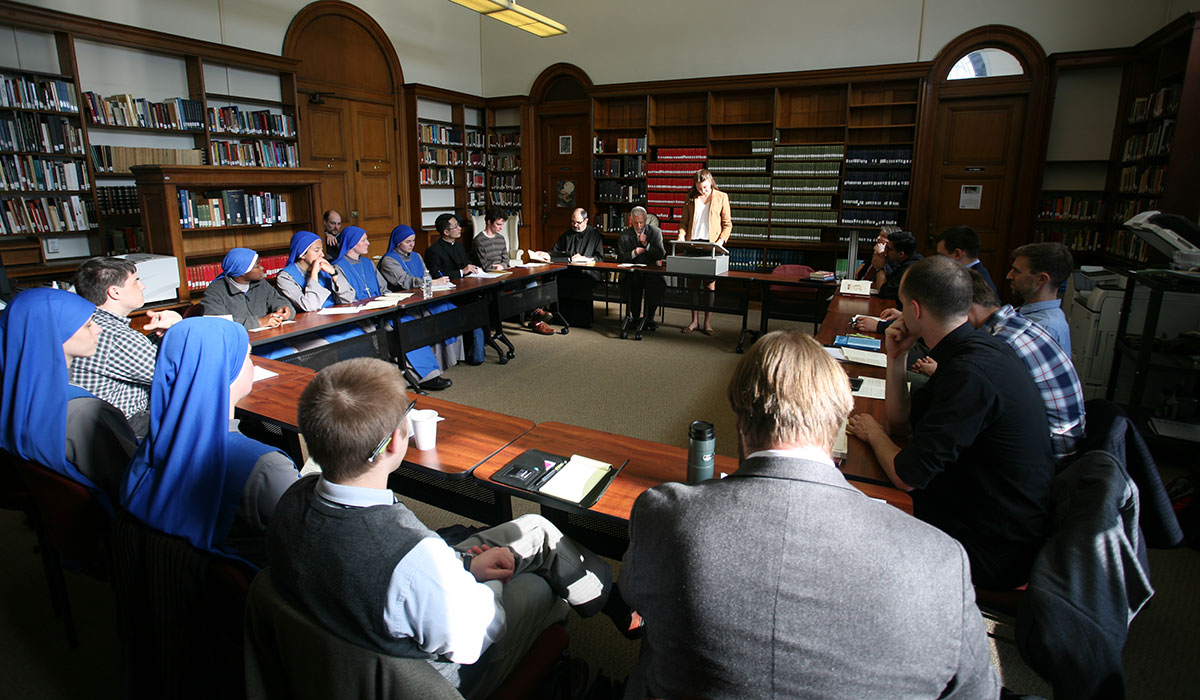The Interdisciplinary Program in Early Christian Studies
The program, administered by the Center for the Study of Early Christianity, draws upon courses and faculty expertise in the Schools of Theology, of Philosophy, and (in the School of Arts and Sciences) the Departments of Greek and Latin, History, and Semitic and Egyptian Languages and Literatures. The program itself strongly emphasizes ancient languages, social and cultural contexts, and a range of disciplines and methodologies. Explore below for details about applications, funding, curriculum, and much more.
Why Pursue A Graduate Degree In Early Christian Studies?
A detailed knowledge of early Christianity (1st to 7th centuries) strengthens understanding of contemporary religion and its links with politics and culture:
- The diversity and mutual relations of contemporary Christian communities
- The shared history and relations of Christianity with Judaism and Islam
- The importance of language in the expression and development of religious ideas
Our interdisciplinary emphasis equips our graduates to make a specific contribution to contemporary debate and religious practice and to research and teaching in history, religion, and language and literature.
A Unique Tradition and A Vibrant Community of Scholars
Since the founding of the university, early Christianity has been a central feature of our research. We have gained therefore a strong national and international reputation, and continue to foster outstanding faculty in the field. (Find out more about the history of our endeavor and the faculty who contribute to it.) Note in particular:
- Our strong and integrated cadre of graduate students with early Christian interests, both within and beyond the program
- Library resources, both on campus and in the Washington area (see immediately below)
- Public lectures and university seminars on early Christian topics
- Visits by early Christian scholars from other parts of the U.S. and overseas
- Funding of graduate students wishing to attend conferences
- Close relations with other university programs, especially in patristic studies, classical history and languages, medieval and Byzantine studies, and the languages and cultures of the Christian Orient

